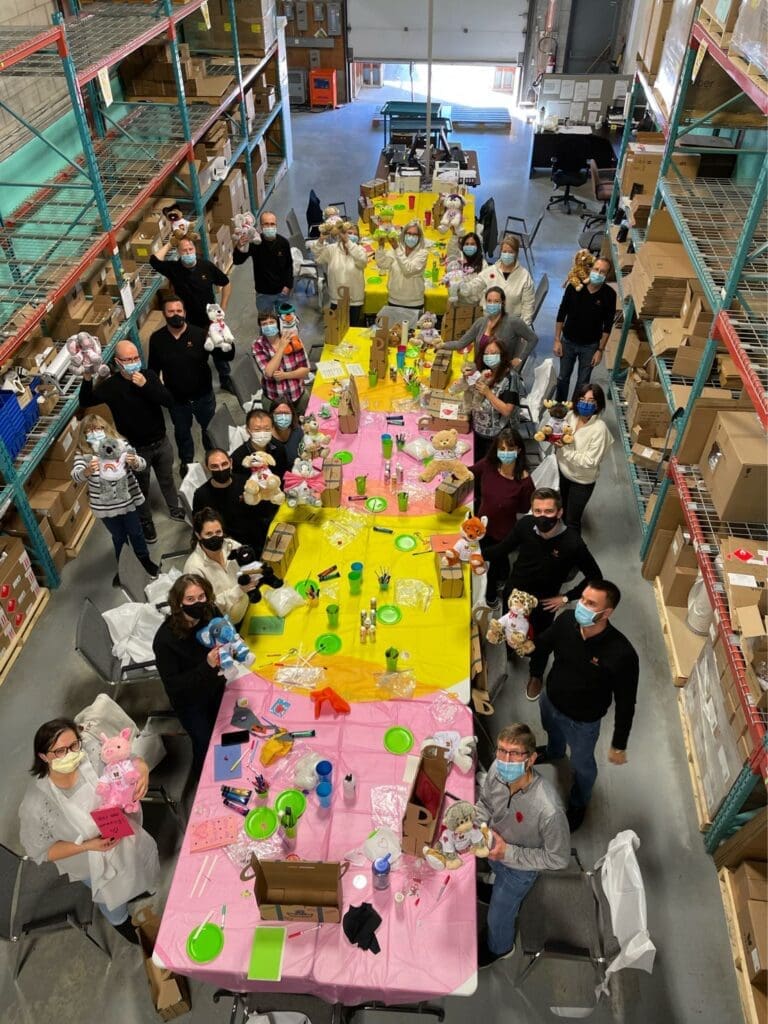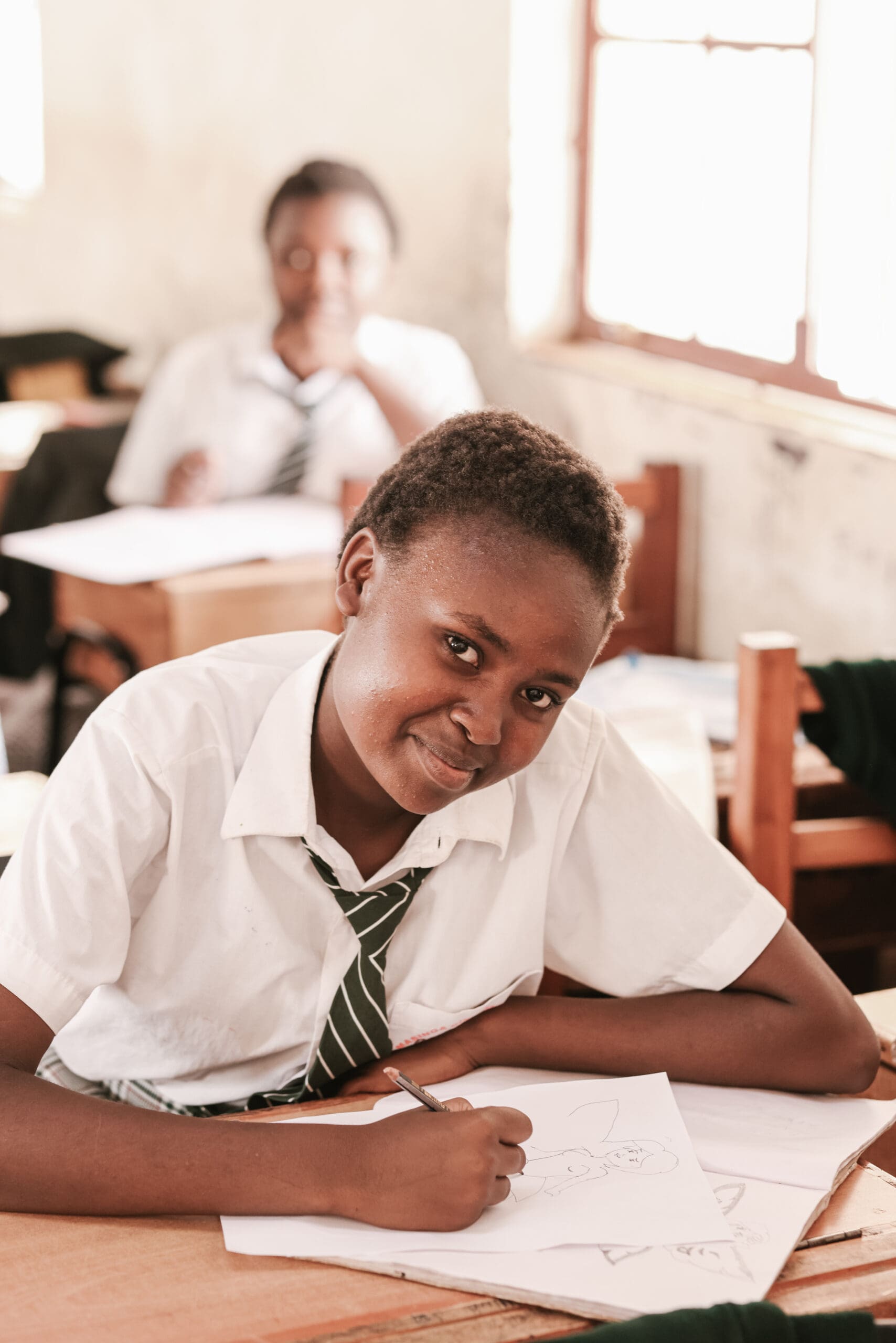Most big brands make a hoo-ha about all the charitable work they do—the corporate social responsibility where they periodically donate money to good causes, give their staff time off to volunteer, or even run their own foundations. That’s all very laudable—even if they only do it for the tax breaks. But what about companies that are small, but choose to have a big impact in their own communities?

Mike Vivier’s parents founded Vivier Skin in Montreal in 2000, and giving back was always part of the brand DNA. “My father was in pharmaceuticals and my mother worked in nursing in clinical research,” he explains. “They devoted their lives to helping and giving back and raised us that it was better to give than to take.”
His company supports around 100 charitable organizations—some big, like the Elton John AIDS Foundation, but many that serve the local community, including Montreal’s Dans La Rue, which supports unhoused people, and St. Mary’s Hospital. There’s a combination of hands-on volunteering from Vivier and his staff, and cash donations. Yet it was only a couple of years ago that Vivier Skin added a somewhat-hidden page about giving back to its website. “We’ve always done it, but it’s not for exposure or recognition,” Vivier explains. “We wanted to start sharing because we realized it would allow us to create a proper platform to do more.” Coming up soon: Vivier merchandise with 100 per cent of profits going to charitable causes.
AG Care has also stayed somewhat schtum about its community work. “There’s a history of be humble, be Canadian, just do the work,” explains chief revenue officer Karla Cheon. Many people are familiar with One Girl Can, the charity established by AG founder Lotte Davis in 2008, which works to build schools in Africa. They’re less familiar with the work the brand does in its Coquitlam community. Cheon says co-founders John and Lotte Davis have always believed that giving back is the reward for their success. “They really clearly and authentically believe that, of course a business wants to be profitable and successful, but it also has a responsibility to the community,” she explains. To that end, the brand changed its name from AG Hair to AG Care in 2022, to reflect its care for the planet and the people who live on it.
Lotte Davis has now left AG Care to run One Girl Can full time, and the brand continues to support the organization by donating money from product sales to the tune of $2.3 million and counting. But it’s also championing a number of other causes, including the Coquitlam Food Bank, a Downtown Eastside women’s shelter and YWCA Crabtree Corner. “We try to pick partners where we can have a meaningful impact—where you can see our work doing something,” Cheon explains. “It’s about narrowing in on partners where you can make inroads, giving time, talent and multiple other things, rather than cutting a cheque and moving on.”
Sometimes there’s a deeply personal reason for partnering with a specific charity—such as in the case of Hammam Spa/Céla Beauty founder Celine Tadrissi. “Look Good Feel Better is a charity we’ve worked with and that has been on our radar for years because one of our estheticians, Ashlie Styles, passed away at 32 from cancer,” she explains. “I remember visiting her in hospital and she had a care pack from Look Good Feel Better; they were arranging a wig, and it was one good experience for her in the horrible last few months of her life.”
Tadrissi thought that as a smaller business she wouldn’t be able to have much impact on the organization in terms of dollars, though she does donate a portion of gift-card sales each year, gives products as prizes at events like the annual Mirror Ball, and so on. So she came up with a way to use the spa’s professional expertise to make a difference. Her senior esthetician took an international certificate in aesthetic oncology: beauty treatments specifically for those undergoing or recovering from cancer treatment. Tadrissi is now working with local colleges and other spas on developing a program for their students, in consultation with Look Good Feel Better. “It covers contraindications and recommended treatments, but also some of the other skills related to working with someone who has an illness: the words you use and avoid, and your tone of voice.” Starting IN 2024, the spa will be opening its schedule once a month for cancer patients to book spa services with modified treatment protocols at no charge.
The communities served by charities benefit from brand partnerships, and customers get to feel good when they buy products from a company that does good. Another bonus of a business doing good work for a charity (apart from the warm-fuzzy feelings)? It instils incredible staff loyalty. Tadrissi has many team members who’ve been at her company since it was founded in 2005. Vivier says the majority of the team-building exercises they do as a company have a charitable component—groups will make up bags of treats for unhoused people or participate in toy drives for children undergoing palliative care. And Cheon says AG Care’s philanthropic work is one of the things that attracted her to the business in the first place.
“The care feels genuine when you come in the building,” she says. “We have more than one instance of a parent and child both working in AG Care. It’s a rarity that you have such an affinity to a company that you want your loved ones to work there, too.” —Aileen Lalor

Be the first to comment